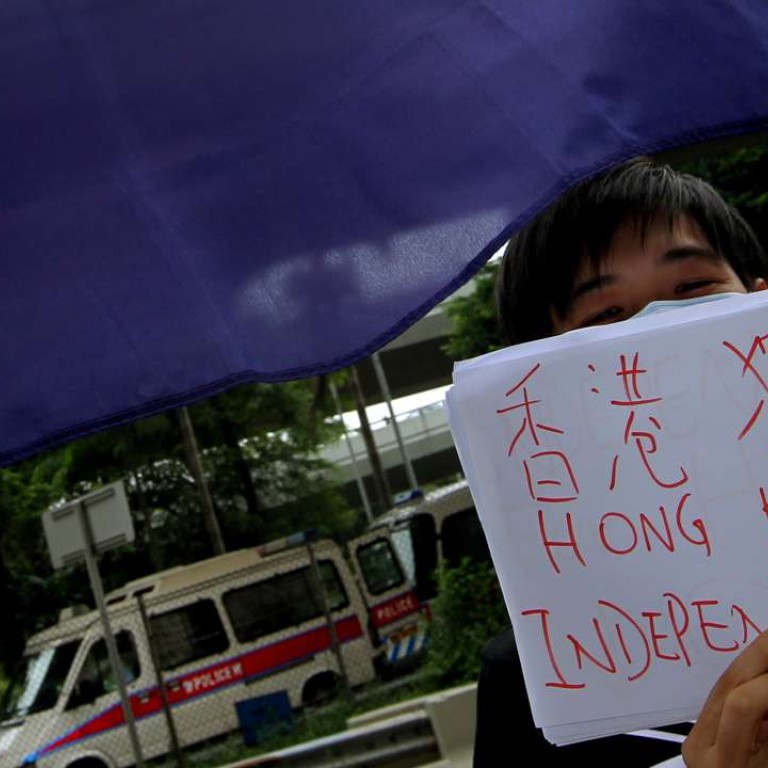
Why Hong Kong independence movement is dead in the water
Long before handover negotiations began, those in the know understood China would never tolerate any separate state on its turf
Renowned British political philosopher Isaiah Berlin noted in 1958, in the essay “Two Concepts of Liberty”, that “concepts nurtured in the stillness of a professor’s study could destroy a civilisation”. History demonstrates that we underestimate the transformative power of seemingly wacky ideas – and the individuals who promulgate them – at our peril.

All it takes for evil to flourish – the old truism proclaims – is for the good to do nothing. And so it is with nonsense in academic life. Once superficially plausible drivel breaks the species barrier and crosses over from university seminar room to infect the general public, dangerous contagion begins. Interested parties – and Hong Kong has no shortage of those, right across the political spectrum – help feed the contamination, which begins its hard-to-stop advance into wider society.

That something so patently impossible – on so many levels – as Hong Kong independence has prompted such unified criticism from across a spectrum of political opinion is unremarkable, however much it may be reported to the contrary.
What they were not prepared to countenance, however, was any manifestation of independent – or even seriously independent-minded – separate territories anywhere in China.

Over the following decades, everyone involved in Hong Kong’s preparations for return to Chinese rule implicitly recognised this unshakeable fact. Even the 1970s political and social activists who formed the Hong Kong Observers (which included, for a time, Chief Executive Leung Chun-ying) did not advocate Hong Kong independence. A high degree of autonomy from China, as a firewall against aspects of Communist rule that many in their own families had decamped to Hong Kong to avoid, was the limit of their ambitions.

The root causes of Hong Kong independence thinking are easy enough to track. Exponentially accelerated “mainlandisation” in recent years has rendered the idea of “Hong Kong people ruling Hong Kong”, and all those other reassuring 1980s phrases, very hollow indeed. An entire generation has watched from the sidelines as their hometown has lost its way in the course of their short lifetimes.

For these young activists, China had 19 years to win Hong Kong over – and blew it. In the absence of any alternative, many have concluded that the best option for their increasingly beleaguered city is to shout, “Go away!” to the sovereign power.

